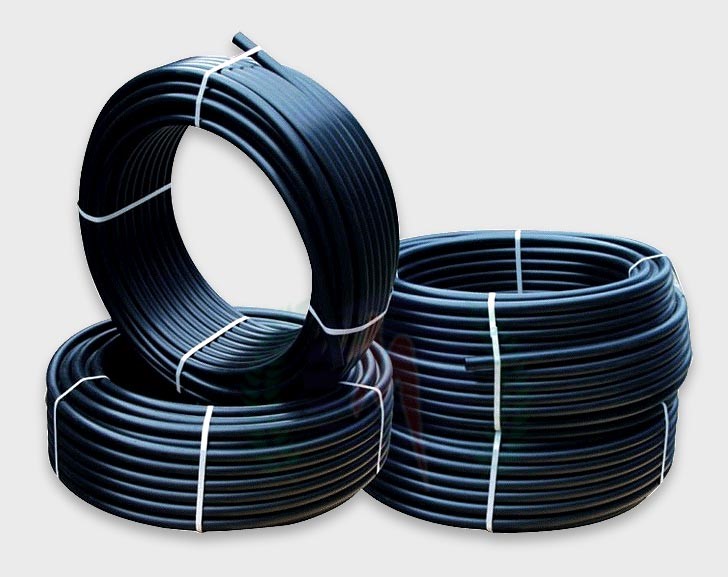The Innovation of American Plastics HDPE Pipe Manufacturing: What You Need to Know
Wiki Article
Understanding the Key Advantages of HDPE Pipeline for Water and Wastewater Administration
The usage of HDPE pipeline in water and wastewater management offers various benefits that merit factor to consider. Its remarkable sturdiness and long life expectancy make it a recommended selection for lots of projects. Furthermore, the material's resistance to rust and chemical damages boosts its dependability in numerous atmospheres. The benefits extend past just long life and resistance. American Plastics HDPE Pipe Manufacturing. Exploring its cost-effectiveness and environmental effect discloses much more engaging factors for its prevalent fostering in contemporary frameworkPhenomenal Toughness and Long Life

HDPE pipeline sticks out for its phenomenal toughness and longevity, making it a recommended option in water monitoring systems. Built from high-density polyethylene, these pipelines can stand up to significant stress and tension, ensuring trusted efficiency over time. Their robust nature permits them to sustain extreme ecological conditions, including temperature level variations and dirt activities, which can create other materials to fail.
The life expectancy of HDPE pipes commonly goes beyond 50 years, supplying an affordable solution for districts and industries alike. Additionally, the material's lightweight residential or commercial properties simplify setup, minimizing labor prices and timeframes. This longevity reduces the need for constant repairs or substitutes, better improving its financial appeal.
In water administration applications, the integrity of HDPE pipelines indicates less interruptions and enhanced solution continuity, making them important to lasting facilities development. The mix of toughness and durability solidifies HDPE's role as a cornerstone in reliable water monitoring remedies.

Resistance to Deterioration and Chemical Damages
While several products give in to deterioration and chemical damages in time, HDPE pipelines show exceptional resistance, making them optimal for different water management applications. This resilience originates from the molecular framework of high-density polyethylene, which is naturally non-reactive and does not corrode like metals or break down from exposure to harsh chemicals. Therefore, HDPE is extremely reliable in environments with aggressive substances, such as wastewater systems that may consist of acids, bases, and organic solvents.
Furthermore, HDPE pipes can hold up against ecological aspects such as soil acidity and saline problems, better boosting their viability for varied applications (hdpe pipe suppliers Midland TX). Their capability to keep structural integrity over time minimizes the threat of leaks and failures, which is crucial in guaranteeing the security and integrity of water circulation and wastewater monitoring systems. The resistance to rust and chemical damage significantly contributes to the overall performance and longevity of HDPE piping remedies.
Cost-Effectiveness and Economic Advantages
When thinking about the financial ramifications of water monitoring systems, the cost-effectiveness of HDPE pipes becomes apparent. These pipes provide lower setup and maintenance costs contrasted to standard products like steel or concrete. Their light-weight nature simplifies transportation and installation, leading to decreased labor expenditures. Furthermore, HDPE pipes show a lengthy life expectancy, often surpassing half a century, which translates to less substitutes and long-term savings.The resistance of HDPE to corrosion and chemical damages lessens the requirement for costly repair work and replacements. The pipelines additionally sustain reliable water flow, reducing power expenses connected with pumping copper plumbing fittings systems. By alleviating leakages and water loss, HDPE pipelines add to considerable financial benefits for communities and industries alike. On the whole, the first financial investment in HDPE piping can produce substantial monetary returns over the lifespan of the water administration system, making it a prudent option for lasting facilities advancement.
Environmental Sustainability and Minimized Influence

Versatility and Adaptability in Installment
Because of their distinct properties, HDPE pipes provide exceptional convenience and flexibility in installment, making them suitable for a variety of applications. Their light-weight nature permits for less complicated handling and transport, lowering labor expenses and installment time. HDPE pipelines can be curved and formed to fit numerous terrains and project requirements, which is specifically helpful in testing atmospheres.Furthermore, their resistance to deterioration and navigate to this website chemical damages allows for installation in diverse settings without the requirement for specialized safety coverings. The capacity to fuse joints develops a continuous, leak-free system, improving the general stability and dependability of the installation. HDPE's adaptability also fits ground movement, minimizing the risk of damage in areas susceptible to shifting dirt. In general, these characteristics make HDPE pipelines not only flexible however also a preferred option for water and wastewater administration systems.
Frequently Asked Questions
Just How Does HDPE Pipe Contrast to PVC in Water Management Applications?
HDPE pipeline uses remarkable versatility, resistance to deterioration, and sturdiness contrasted to PVC. Its lighter weight facilitates easier installment, while its long life expectancy decreases substitute costs, making HDPE a preferred option in water monitoring applications.What Is the Life-span of HDPE Piping Under Normal Conditions?
Under typical conditions, HDPE pipes can have a life-span varying from 50 to 100 years. Their resilience and resistance to corrosion add to their long-lasting performance in numerous applications, making them a reputable option for infrastructure.Are HDPE Piping Recyclable After Their Life Span?
Yes, HDPE pipelines are recyclable after their service life. Texas hdpe pipe manufacturer. They can be processed and repurposed right into new items, substantially lowering environmental impact and promoting sustainability within the market, making them an eco-friendly choice for piping servicesWhat Is the Installation Process for HDPE Pipes?
The installment process for HDPE pipelines involves site prep work, trenching, pipe combination or mechanical signing up with, backfilling, and stress testing. Appropriate methods assure a resilient and effective system for transporting water and wastewater efficiently.Can HDPE Pipeline Be Utilized for Both Safe And Clean and Non-Potable Water Solutions?
Yes, HDPE pipelines can be used for both safe and clean and non-potable water supply. Their adaptability, toughness, and resistance to rust make them appropriate for numerous applications, making certain secure and reliable transport of water in various contexts.Report this wiki page